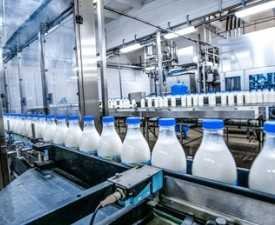Description
Course Title: Certificate in Milk Product Manufacturing
Course Duration: 6 Months (Part-time/Full-time options available)
Course Overview:
This certificate program provides comprehensive training in the production, processing, and quality control of milk products. Participants will gain hands-on experience in dairy technology, product formulation, packaging, and safety standards. The course is ideal for aspiring dairy technologists, entrepreneurs, and professionals in the food industry.
Course Modules:
-
Introduction to Dairy Science
-
Milk composition and properties
-
Types of milk (whole, skimmed, flavored, etc.)
-
Milk microbiology and hygiene
-
-
Milk Processing Techniques
-
Pasteurization, homogenization, and standardization
-
UHT (Ultra High Temperature) processing
-
Separation and filtration methods
-
-
Manufacturing of Milk Products
-
Cheese production (soft, hard, processed)
-
Yogurt and fermented milk products
-
Butter, ghee, and cream processing
-
Ice cream and flavored milk production
-
-
Quality Control & Safety Standards
-
Food safety regulations (FSSAI, HACCP, ISO)
-
Testing methods for milk adulteration and spoilage
-
Shelf-life enhancement and packaging techniques
-
-
Dairy Plant Operations & Management
-
Equipment handling and maintenance
-
Waste management in dairy processing
-
Entrepreneurship and business opportunities in dairy
-
Learning Outcomes:
-
Understand milk chemistry and processing methods.
-
Gain practical skills in manufacturing various dairy products.
-
Learn quality assurance and regulatory compliance.
-
Develop knowledge of dairy plant operations.
Eligibility:
-
Minimum 10+2 (Science background preferred but not mandatory)
-
Professionals working in dairy/food industries can also apply
Certification:
Upon successful completion, participants will receive a Certificate in Milk Product Manufacturing from [Institution Name].
Career Opportunities:
-
Dairy Technologist
-
Quality Control Officer
-
Production Supervisor in Dairy Plants
-
Entrepreneur (Dairy Processing Unit Owner)
-
Food Safety Consultant
Training Methods:
-
Lectures & Demonstrations
-
Hands-on Practical Sessions
-
Industry Visits (Dairy Plants)
-
Case Studies & Project Work
Fee Structure: [Varies by institution]
Mode of Delivery: Classroom/Online/Hybrid




